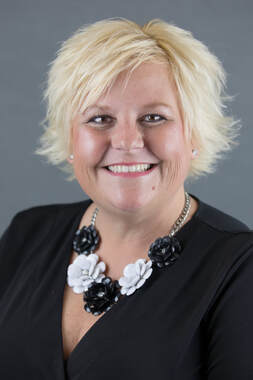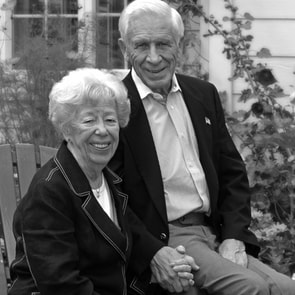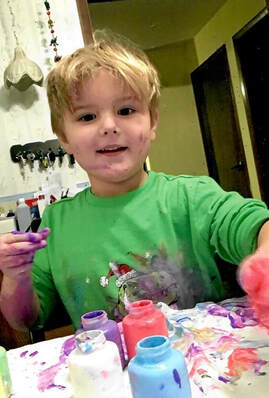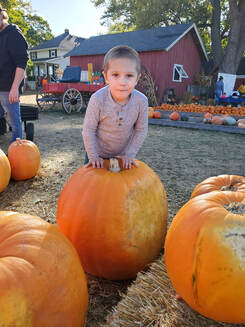 Stacy Harper, Executive Director, Avenues for Autism
Stacy Harper, Executive Director, Avenues for Autism We are steadfast in our mission to expand opportunities to enrich the lives of individuals and families affected by autism. We create possibilities through our Suzanne Tyner Autism Fund by assisting families with the unimaginable expense of raising a child with autism. We facilitate the Autism Provider Network (APN), working within the autism provider community to identify and fill gaps in services. We work to foster a cohesive community collaborative and promote awareness. In the process, we’re providing a roadmap for the avenues that lead to lives without limits.
Can you tell us a little bit about Avenues for Autism’s history in Toledo and how/why it got its start?
Avenues for Autism, formerly The Great Lakes Collaborative for Autism (GLCA), was founded in 2004 by Bob and Suzy Tyner. As parents of a child with autism, Suzy and Bob never stopped trying to understand autism or how to help their son thrive. Frustrated over the years by the lack of readily available information, the Tyners were determined to share whatever knowledge they learned with other parents and to help find a quicker pathway to diagnosis. Thanks to Bob and Suzy’s commitment to this community, many lives have been positively impacted.
What are some of the biggest myths or misconceptions when it comes to people with autism?
People often create stereotypes for individuals with autism. As if everyone affected by autism is the same. They make assumptions that individuals with autism are exactly like Rain Man, The Good Doctor or Sheldon Cooper. They may also assume that autistic individuals can’t live a “normal” life. It’s simply not true, and what is “normal” anyway?
Individuals affected by autism are quite remarkable because no two individuals are the same. They are unique in their own special way just like those individuals without autism. There is a wide variation in challenges and strengths possessed by each person with autism. Regardless of where an autistic individual falls on the spectrum, they’re able to conquer the possible. Many are enjoying life independently, happy and capably.
 Suzy and Bob Tyner
Suzy and Bob Tyner Bob Tyner was an amazing man. He was brilliant, hard-working, fun-loving, talented, extremely generous and genuine. I remember the first time I met him. He was so friendly, welcoming, interested. I felt like I knew him my entire life. He was so easy to talk to and made this perfect stranger suddenly feel like a friend. That was the kind of man he was, loved and respected by all that knew him.
The legacy Bob and Suzy created will help individuals affected by autism experience opportunities they never imagined possible. The Tyner family wanted Avenues to help existing resources build and grow. With one in 54 children diagnosed with ASD each year, the need for support is even greater than when their journey first began. Their commitment these past 17 years has made an incredible impact for so many individuals and their families locally. Their children and grandchildren, who have been involved from the beginning, are committed to carry on their family’s legacy and enabling Avenues to grow and serve like never before. Our work will ensure families have resources and services available to them for generations to come. All of us at Avenues for Autism are humbled to work alongside the Tyner family to carry on their legacy. Together, we know we can make a difference!
Those areas of greatest concern are that diagnoses are increasing at an alarming rate and the needs for services and programs has grown too. One in 54 individuals are diagnosed with autism. Many families are faced with out-of-pocket costs, on average, of $60,000 per year to provide therapy, medical treatment, sensory items and other needs for development. Poor employment and post-secondary opportunities for students with disabilities has become a growing concern. The need for individualized transitional programs is essential. Services in the area are disjointed and families are serving as their own care navigator. The most autism-friendly areas have created autism centers to serve all ages of individuals on the spectrum. Our area has none.
It quickly became evident that Avenues for Autism should take greater responsibility, than in years past, to develop and lead sustainable programs and services that would make a positive impact for individuals with autism in our area. So, we did. We created the Suzanne Tyner Fund to help individuals with the unimaginable costs associated with autism and have provided more than $200,000 in assistance locally. We also fund a high school program, Venture Bound, to help students with autism transition from school to employment. Finally, we are leading efforts to create an Autism Navigation Center which will support individuals and their families, at onset, through diagnosis, and for a lifetime to utilize the services in our area that will help them develop and maximize their potential. Many individuals are currently left with little knowledge of resources, programs and services available to improve their development and we want to ensure that all individuals with autism can live without limits.
 Gabriel. Photo courtesy of Avenues for Autism
Gabriel. Photo courtesy of Avenues for Autism 2020 served as a transition year for Avenues for Autism. We had a new name and new staff, it was inevitable that our focus was concentrated on awareness, cultivating relationships, identifying opportunities for growth, reducing expenses while maximizing support, and continuing collaboration to identify gaps and meet the community’s needs.
During the pandemic we faced several challenges, however it caused us to think outside the box and to find ways to serve our families differently. We host two fundraisers each year. Unfortunately, in March, we had to cancel our annual Suzanne Tyner Autism Fund Breakfast. We were concerned that we would be unable to provide families with the assistance they’ve grown to depend on during a time when they needed us the most. Fortunately, that was not the case. We have some of the most generous supporters, and although we didn’t gather for our event, we were able to raise over $16,000 virtually. As families were restricted to their homes, we received unique requests for support. Some of our favorite requests were to help build a fence so a child with autism could go outside and play safely in their back yard. We purchased sensory clothing to help a child feel comfortable and reduce stress since their daily routine had been disrupted. We purchased a stroller for another family so they could take walks outside and keep their child safe.
Our second annual fundraiser, the 9 and Wine and Party Is event was redesigned. We moved our event from summer to fall. We were able to host an 18-hole golf outing, and to our surprise we had over 130 golfers participate. It was a huge success and we raised over $30,000. Those funds are reserved to help launch the Autism Navigation Service program. Since 2020 was a most unusual year, we decided to do something a bit unconventional at the end of the year. We partnered with Meijer’s and the William Vaughan Company for our Giving Tuesday Campaign. Just before the holidays we sent 54 individuals, who had previously received the Suzanne Tyner Autism Assistance Funds, a $125 gift card to Meijer. We know that raising a child with autism can be expensive and we wanted to provide some relief during this time. All in all, we learned to adapt and to do whatever it took to serve our families the best we possibly could.
 Zayn. Photo courtesy of Avenues for Autism
Zayn. Photo courtesy of Avenues for Autism With one in 54 individuals diagnosed with Autism Spectrum Disorder, it’s highly probable that you know someone with ASD. Get to know them, embrace their uniqueness, be patient, show compassion.
Reach out to your neighbor, family or friend raising a child with autism and ask how you can help.
Celebrate autism awareness month by arranging a play date with one of your children, providing transportation to ABA therapy or drop off a meal to the family. Just show your support by recognizing their more than busy schedule and let them know you care.
Families raising a child affected by autism pay on average $60,000 more per year for medical treatments than the average person. Also, due to the demanding schedule for therapy, treatments and other programs, many families find themselves dependent on one income so that the mother or father can be available to transport their child while in treatment. Keep this in mind when considering your annual contributions to local charities. Learn more about how the organization is making a direct impact by assisting with out-of-pocket expenses.
How can people who want to support Avenues for Autism’s mission get involved?
To learn more about autism and the ways you can help make life easier for those affected by autism go to avenuesforautism.org.
Please consider donating to the Suzanne Tyner Autism Fund, sponsoring an event or providing an annual gift.
Contact Stacy Harper, Executive Director at or call 419.291.7031 for volunteer opportunities and other ways to support our organizations efforts.
What should community members expect to see next from the organization?
Most recently we began an initiative to provide autism navigation services, a top priority need in the 2017 community needs assessment that does not currently exist locally. We are working diligently to provide access and support to individuals with autism in our community. We have strategically inserted ourselves into the community as a resource for financial assistance, resource sharing and navigation, education, and family support for individuals with autism. As we develop the autism service navigation program, we recognize our ability to fulfill a community need that will provide resources about ASD services, connect families to services and make meaningful community connections like never before. Early intervention increases the opportunities an individual with autism may experience within their lifetime. As one of the top concerns expressed in the community through the community needs assessment there is a demand for awareness of services available locally, knowledge of providers who specialize in autism and care for individuals with autism, and support to navigate through the system with continuous follow-through, adaptability, and execution of an individualized plan.
Is there anything else you would like to discuss or anything these questions didn’t cover?
We witness firsthand what individuals with autism can accomplish when limitations are removed. So, we’re clearing the pathways to support services, information, and financial assistance. In the process, we’re providing a roadmap for the avenues that lead to lives without limits. To learn more about Avenues for Autism and how you can help, visit avenuesforautism.org or contact Stacy Harper, Executive Director, at [email protected].


 RSS Feed
RSS Feed
